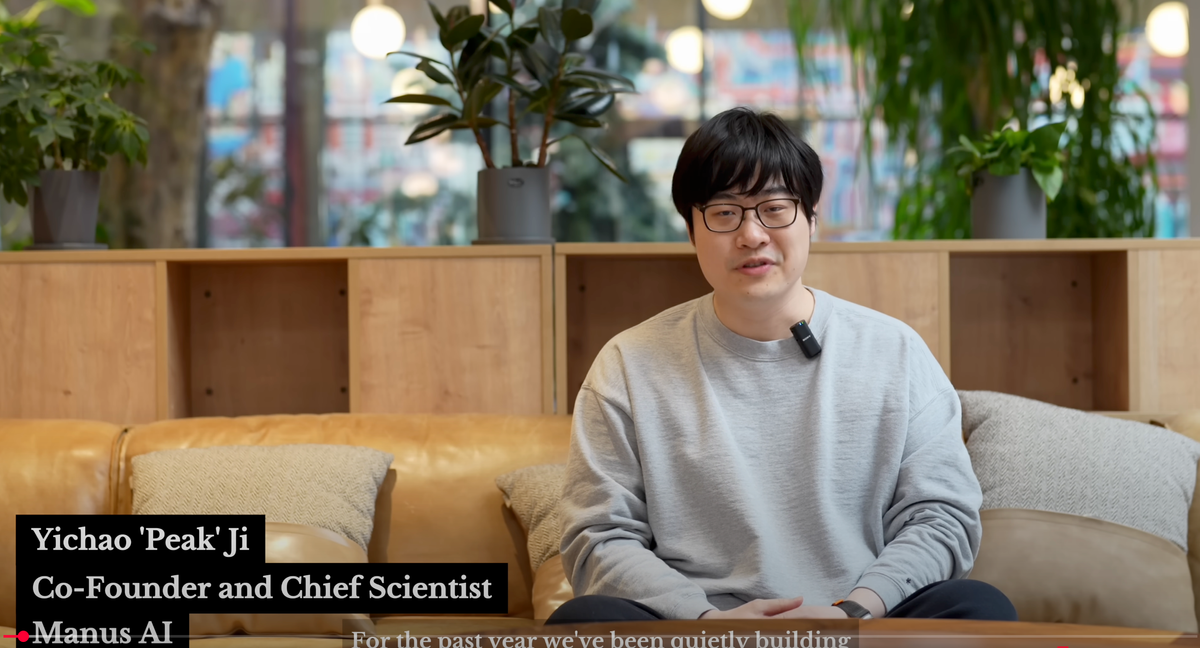💡 TL;DR - The 30 Seconds Version
👉 Manus AI launched Wide Research on July 31, deploying 100+ AI agents in parallel to challenge OpenAI and Google's single-agent Deep Research approach.
💰 The Singapore startup raised $75 million from Benchmark in April and charges $199 monthly for Pro access to the experimental feature.
🤖 Each agent runs on its own virtual machine, claiming to scale compute power 100x per user compared to traditional single-agent systems.
❌ Manus provides zero performance benchmarks or evidence that agent swarms actually outperform single agents working sequentially.
🚫 Tennessee and Alabama banned Manus from state networks over security and bias concerns, highlighting regulatory resistance to autonomous systems.
🔄 The company bets parallel processing beats deep sequential work, an approach that could either revolutionize AI tasks or prove quantity doesn't beat quality.
While OpenAI and Google perfect their "Deep Research" tools that send one AI agent down research rabbit holes for hours, Singapore startup Manus just launched the opposite approach. Their new "Wide Research" feature spins up over 100 AI agents simultaneously to tackle the same task in parallel.
The contrast couldn't be sharper. Where Deep Research agents spend time methodically working through problems step by step, Manus deploys what it calls "agent swarms" that divide and conquer. Need to compare 100 sneakers? Deploy 100 agents, each analyzing one shoe. Want 50 poster designs? Get 50 agents working on different styles at once.
Manus announced Wide Research on July 31, positioning it as the first major upgrade since the company's splashy March debut generated overwhelming demand. The feature launches immediately for Pro subscribers paying $199 monthly, with plans to roll it out to cheaper tiers later.
The Company Behind the Swarm
Manus has had quite the journey since March. Originally perceived as a Chinese AI venture, the company actually operates from Singapore - a strategic move given rising US-China tech tensions. The startup raised $75 million in April from Benchmark and other investors, validating its approach to what it calls "General AI Agents."
But Manus positions itself as more than just another AI assistant. The company describes its platform as a "personal cloud computing platform" where each agent session runs on a dedicated virtual machine. This architecture, they claim, gives users supercomputing power through simple conversation.
The company's leadership includes co-founder and Chief Scientist Yichao "Peak" Ji, who demonstrated the sneaker comparison task in a video posted to show off Wide Research capabilities. Each of the 100 concurrent agents analyzed design, pricing, and availability, returning a sortable matrix in both spreadsheet and webpage formats within minutes.
How Agent Swarms Actually Work
Traditional multi-agent systems assign specialized roles - one agent manages, another codes, a third designs. Manus takes a different approach. Every subagent in Wide Research is a fully capable, general-purpose Manus instance running its own virtual machine.
This design choice matters. Instead of rigid templates constraining what agents can do, each one can handle any task thrown at it. The company demonstrated this flexibility with creative applications like generating 50 distinct poster designs simultaneously, delivering polished assets in a downloadable ZIP file.
The technical infrastructure required significant optimization. Manus spent months developing what it calls "large-scale virtualization infrastructure" to support the parallel processing demands. The goal was scaling available compute power by 100 times per user - essentially giving anyone control of a personal supercomputing cluster through chat.
The Evidence Problem
Here's where things get interesting. Manus makes bold claims about Wide Research's advantages, but provides zero evidence that agent swarms actually outperform single agents. No benchmarks. No speed comparisons. No cost analysis.
The company hasn't explained how subagents collaborate, how results get merged, or whether spawning 100 agents delivers measurable improvements over one really good agent working sequentially. That's a significant oversight given the resource intensity of running multiple virtual machines simultaneously.
The broader multi-agent ecosystem doesn't inspire confidence either. Reddit users complain about Claude's Code subagents being slow and token-heavy with limited execution visibility. Common issues include poor coordination between agents, debugging difficulties, and erratic performance under load.
Manus acknowledges Wide Research remains experimental, which suggests even they're not entirely confident it works as advertised.
Regulatory Headwinds
The company faces another challenge: government pushback. Tennessee Governor Bill Lee banned Manus from state networks shortly after its March launch, citing risks of "censorship, propaganda, and bias." Alabama followed with similar restrictions over security vulnerabilities.
This regulatory scrutiny reflects broader unease with fully autonomous systems operating without human oversight - a core principle of Manus's design. As the company scales its agent swarms, these concerns could intensify.
The timing creates additional pressure. Manus is rolling out its most ambitious feature yet while navigating skeptical regulators who've already flagged the platform as problematic. That's not exactly ideal conditions for proving that 100 agents work better than one.
What This Means for AI Agents
Manus is essentially betting that parallel processing beats sequential deep work for AI agents. It's an intriguing hypothesis that challenges the current industry direction toward more capable individual agents.
If Wide Research delivers on its promises, it could reshape how we think about AI task completion. Instead of building smarter individual agents, perhaps the answer is coordinating many simpler ones. The architectural implications would ripple through the entire AI agent ecosystem.
But if it fails - if agent swarms prove more expensive, less reliable, or simply not better than single agents - Manus could find itself with impressive technology that solves no real problems. The lack of performance data makes this a genuine unknown.
The company hints at bigger ambitions beyond Wide Research, suggesting this feature represents just the beginning of what their infrastructure enables. Whether that infrastructure proves valuable depends entirely on whether parallel agent processing actually works.
Why this matters:
• Manus is testing whether quantity beats quality in AI agents - an approach that could either revolutionize task completion or prove that more isn't always better
• The lack of evidence supporting agent swarms highlights how much of the AI agent space remains experimental, with companies making bold claims based on architectural ambition rather than proven performance
❓ Frequently Asked Questions
Q: How much does Manus cost compared to OpenAI and Google?
A: Manus Pro costs $199 monthly for Wide Research access. Basic plans start at $19 monthly. OpenAI's ChatGPT Pro with Deep Research costs $200 monthly, making Manus competitively priced despite being experimental.
Q: What exactly can you do with 100 AI agents working at once?
A: Manus demonstrated comparing 100 sneakers simultaneously and generating 50 poster designs in parallel. Users can analyze Fortune 500 companies, rank MBA programs, or research thousands of stocks - tasks requiring high-volume data processing.
Q: Why did Tennessee and Alabama ban Manus from government networks?
A: Tennessee Governor Bill Lee cited risks of "censorship, propaganda, and bias" while Alabama flagged security vulnerabilities. Both states worry about fully autonomous systems operating without human oversight in government settings.
Q: What happened during Manus's March launch that created so much buzz?
A: Demand overwhelmed their servers completely. Co-founder Zhang Tao admitted they "completely underestimated the level of enthusiasm." The viral response led to their $75 million funding round just one month later.
Q: How do 100 agents coordinate without chaos?
A: Manus hasn't explained their coordination protocol publicly. Each agent runs on its own virtual machine and can handle any task, unlike specialized multi-agent systems. The company calls it "agent-to-agent collaboration" but provides no technical details.
Q: Who founded Manus and what's their background?
A: Co-founder and Chief Scientist Yichao "Peak" Ji leads product demonstrations. The company operates through parent firm Butterfly Effect, now headquartered in Singapore after initially being perceived as Chinese. Technical backgrounds weren't disclosed.
Q: Is Wide Research actually faster than single-agent approaches?
A: Unknown. Manus provides no speed benchmarks, cost comparisons, or performance data. The company completed a 100-sneaker analysis "within minutes" but doesn't compare this to single-agent completion times.
Q: Are other companies building similar multi-agent systems?
A: ByteDance and MiniMax started developing AI agents after Manus's March launch. However, most focus on single powerful agents like OpenAI's Deep Research rather than parallel swarms. Reddit users report mixed results with existing multi-agent tools.














